Christopher Marlowe and William Shakespeare were both eminent writers of the Elizabethan era and broke the conventions of traditional English drama. They paved the way for a more sophisticated and modern way of writing for future dramatists and poets.
So, did Christopher Marlowe and William Shakespeare know each other? Both Christopher Marlowe and Shakespeare were born in the same year in London just two months apart, but Marlowe’s career as a writer was shortened due to his untimely death. Shakespeare’s career bloomed after Marlowe’s death, and he was truly a creative genius and owed much of his theatrical success to Marlowe.
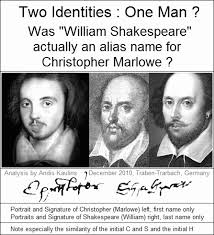
How were contemporaries Christopher Marlowe and William Shakespeare similar?
Contents
Christopher Marlowe and Shakespeare similarities were evident in their work. They were both sons of tradesman and followed the similar style of blank verse in their writings. Both Marlowe and Shakespeare were hugely successful and wrote about love, tragedies, drama, poetry, comedy, and historical figures.
The structure of the plot and the beginning of the plays were quite similar for both Marlowe and Shakespeare. In most of the cases, the plays began with a dispute among the main characters of the play.
Another important feature of their plays was the unification of ideology. Both Marlowe and Shakespeare believed in religious unity mainly between the two separate wings of Protestantism and Catholicism that was threatening England and was the cause of the civil wars in the country. There was a great sense of patriotism in the plays where the characters evoked moral values like heroism, loyalty for the nation, and individualism or freedom to openly display views and ideas.
Though Marlowe introduced comic scenes in his play, they were flawed and lacked humor or wit. Shakespeare was a genius in comedy and introduced masks and clowns in his comic plays.
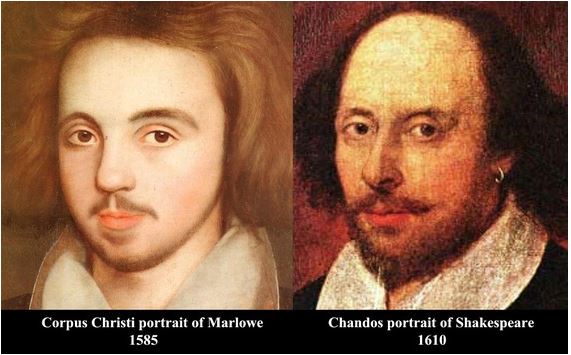
How did Christopher Marlowe, influence Shakespeare?
Marlowe challenged the methodical interpretation of Elizabethan characters and broke the barriers of endless use of moral values and interludes in English drama. Shakespeare was greatly influenced by the use of blank verse by Marlowe and followed his footsteps and they both revolutionized English drama in the history of English literature.
Christopher Marlowe’s impact on Shakespeare at the beginning of his career was quite evident in his works. Shakespeare’s historical plays like Richard II & III and Merchant of Venice were quite similar to that of Marlowe’s Edward II and the Jew of Malta.
Marlowe’s prologue in his famous play ‘Tamburlaine the Great’ where he addresses the audiences to free themselves from the shackles of moral judgement and prioritise actions and emotions helped Shakespeare to give more importance to human feelings and senses rather than moral values. Marlowe’s description of Barabas in Tamburlaine and Shakespeare’s ‘Shylock the Jew’ in Merchant of Venice are quite similar.
Shakespeare in his romantic comedy “As you like it” quoted one of Marlowe’s famous line from his epic poem Hero and Leander “Whoever loved that loved not at first sight?”. This is the greatest tribute of Shakespeare to his contemporary writer Marlowe and the passage was written just after Marlowe’s mysterious death. The character of ‘Dead Shepherd’ is in fact dedicated to Marlowe.
Christopher Marlowe influences Shakespeare’s ‘The Tempest’ in his brilliant portrayal of the character of Prospero which is quite similar to Marlowe’s “Doctor Faustus”. Both these characters desire for the superficial hunger for knowledge and power through the use of magic.
Similarly, many characters in Shakespeare’s romantic dramas like Romeo and Juliet, Anthony and Cleopatra or Troilus and Cressida were developed from Marlowe’s characterization of Aeneas and Dido from the Queen of Carthage.
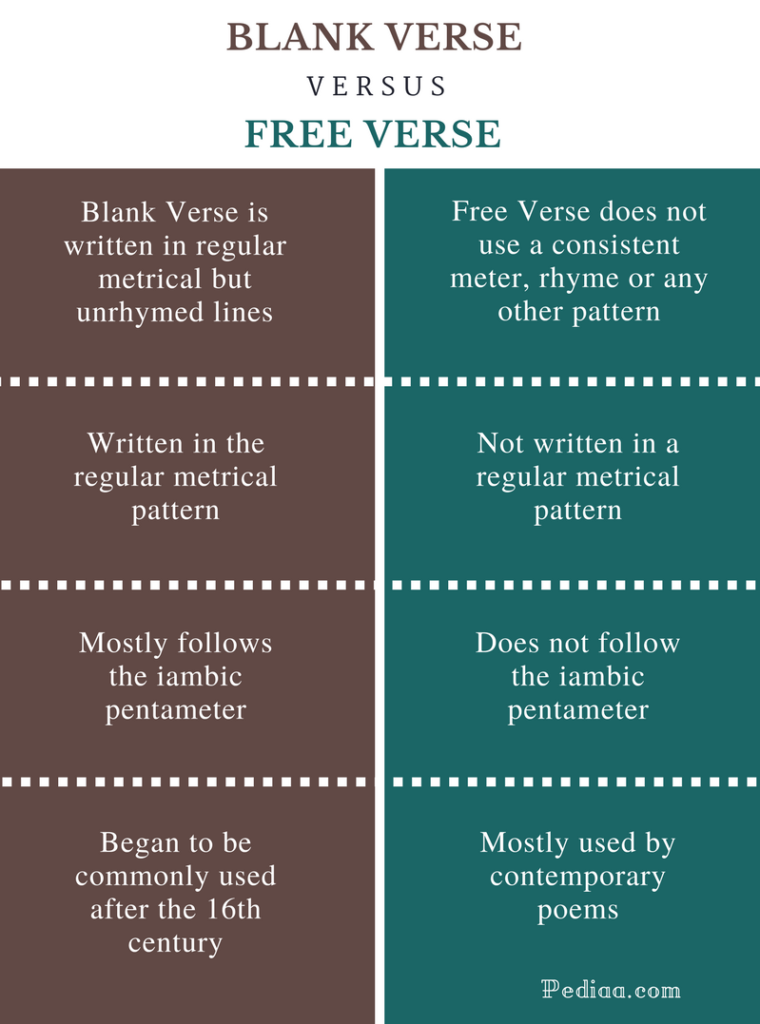
Did Christopher Marlowe write Shakespeare’s plays?
Was Christopher Marlowe William Shakespeare? This is still one of the most pertinent questions that haunt historians even today.
The Christopher Marlowe and Shakespeare relationship have been a matter of great dispute for many historians and dramatists. According to some, Christopher or Kit Marlowe was Shakespeare’s mentor and the biggest influence in his work. There are others who claim that Marlowe is actually Shakespeare working in disguise who faked his own death. However, the biggest challenge of this theory was that both Marlowe and Shakespeare in spite of their similarities had a completely different writing style and language usage.
This age-old debate circulated in the English literary circle for quite a while as to whether Christopher Marlowe is Shakespeare and they are both the same person. The debate was perhaps due to the mysterious circumstances surrounding the death of Marlowe.
Many historians believed that Marlowe was actually a government spy working in secret service for the Queen. He got involved in a political conspiracy and was to be brought to trial and the Queen strategically removed Marlowe from the scene by faking his own death. After that, William Shakespeare was brought in confidence and gave his name to all of Marlowe’s plays. The Christopher Marlowe and Shakespeare theory, however, lacked conviction and was later ruled out.
Though the fact that Christopher Marlowe wrote, Shakespeare plays have been dismissed but Christopher Marlowe has been credited as Shakespeare’s co-author on Henry VI plays. Now, Marlowe’s name will appear as a co-author of Shakespeare in the ‘New Oxford Shakespeare’. Two of the other plays of Shakespeare have also accredited Marlowe as the co-author.
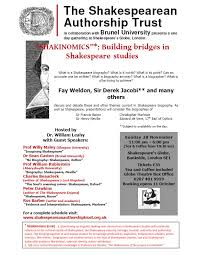
William Shakespeare vs Christopher Marlowe
Christopher Marlowe and Shakespeare were born in the same year, same place and both are considered to be the jewels in English literature. They were the most famous and highly reputed playwrights that the English drama society has ever known. Their work might show similarities in comparison to the selection of language, use of blank verse and even in the characterization of plays, but they are two separate entities both in personality and their creative genius.
Difference in Personality
Marlowe was a notable scholar, much ahead of his times and attained several scholarships and classical learning in his lifetime. He was born in Canterbury and attended the King’s school and Corpus Christi College where he earned scholarships. Marlowe was also a free spirit and bohemian in nature.
He was a true Renaissance poet inspired by the ideas of Machiavelli ideology, was boisterous in nature and had independent political views. He led a much more colourful life than his contemporary Shakespeare.
Shakespeare was born in Stratford-upon-Avon and attended the Kings New School and a grammar school where he learned Latin and literature. Unlike Marlowe, Shakespeare was self-schooled and did not hold any distinct religious or political views.
He instead harboured his own ideas and beliefs based on self-interpretation of human nature. He was married at the young age of 18 to Anne Hathway and they had three children, an older daughter Susanna and twins Hamnet and Judith.
Marlowe began his career much earlier than Shakespeare and he was a playwright, a poet, and a translator. Shakespeare began his career much later and became an acclaimed writer, actor, playwright, and also the co-owner of an acting troupe called the ‘King’s Men’. Though it was Marlowe who incorporated the use of ‘blank verse’ in English drama, Shakespeare recreated it and mastered the application of blank verse and took it to a whole new level.
The Characterization of Tragic Hero
Marlowe often referred to as the “Father of English Tragedy” introduced us to the concept of tragedy in his dramas and poems. His heroes were flawed and vulnerable that would often bring about their downfall in the end. Before Marlowe, early Elizabethan heroes were superficial, idealist and almost perfect. Marlowe broke that convention. His characters were much more realistic and humane that will evoke pity and fear among the audiences.
Shakespeare’s tragic heroes reflected the same flaw and immanent defects that will bring about their fall in the end. Shakespeare’s Macbeth, Hamlet, and King Lear were very similar to Marlowe’s Barabas, Tamburlaine, Edward II, or Doctor Faustus and all these characters had shortcomings of their own.
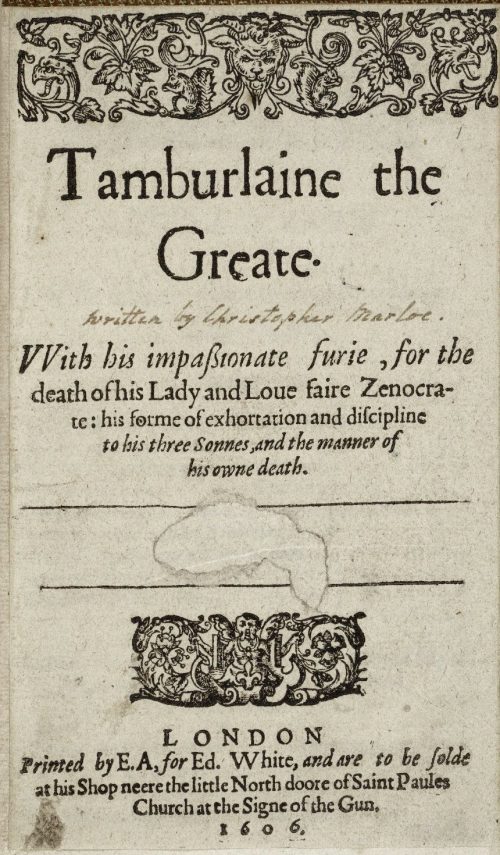
The Concept of Mystery
Another notable difference between Shakespeare and Marlowe’s tragedies were the concept of mystery. Shakespeare introduced the element of supernatural beings and mysticism like the witches in Macbeth or the ghosts in his play Hamlet into his dramas. Marlowe’s tragic plays were much more straightforward and had no component of mystery and followed the usual course of events. Viewers could easily anticipate the endings of Marlowe’s drama.
Apart from that, Marlowe’s dramas projected his own personality based on his life events and experiences whereas the characters of Shakespearean plays represented people from all walks of life.
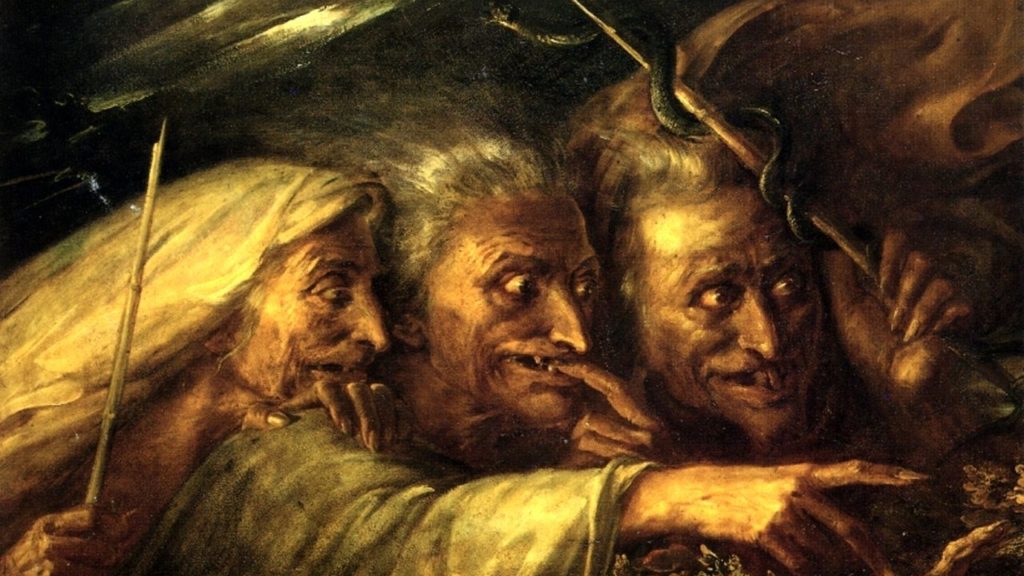
Element of Comedy
There is no doubt that Marlowe was not a comic genius. Shakespeare, on the other hand, had the gift of humour. Marlowe tried to use many comic scenes in his plays like the ones in Doctor Faustus but they are immature and fail to bring any comic relief to the viewers. Shakespeare’s comic scenes were much more dramatized, witty and had an inherent sense of humour.
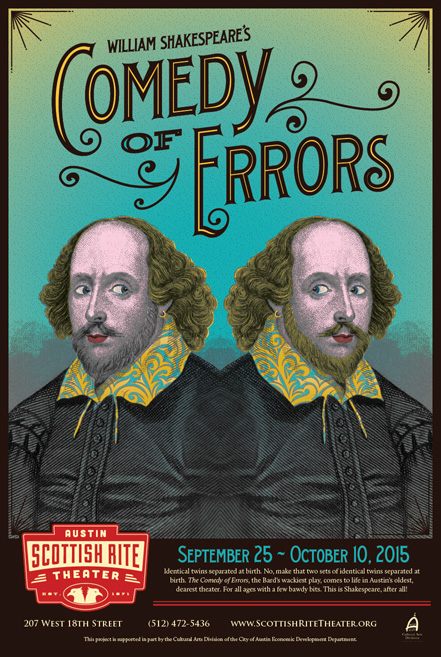
Characterisation of characters in the play
When it comes to characterization, Shakespeare was far more superior than Marlowe. Marlowe’s influence in Shakespeare was evident not only in his work but had a profound effect in Elizabethan drama. But despite that, Marlowe lacked the finesse and flair of Shakespeare.
Marlowe died young, and this may be a reason why his characters lacked the maturity of human emotions.
One of the significant drawbacks of Marlowe’s characterization was the complete dearth of female characters in his plays. Also, there was a complete absence of understanding of the female leads of Marlowe’s plays. On the other hand, Shakespeare introduced us to a wide range of female characters like Cleopatra, Desdemona or Lady Macbeth and the complexity and greatness of these characters amaze us.
Shakespeare also used a lot of supporting characters that assisted the main leads in his plays. Marlowe focused more on the heroes of his tragedies rather than the secondary characters which might have provided much more depth to the characterization of his plays.
Construction of Plots
The fabrication of plots in Shakespeare’s dramas was intense, mature and revealed the different aspects and stages of human life that enriched the overall feel of the plays. Shakespeare used a lot of subplots in his plays which supported the main plot and created an easy flow of events in the play.
Marlowe’s plots were much more shallow, unsophisticated and had a lot of technical shortcomings. There was a complete lack of subplots and the plays followed a single line of action and as a result, failed to reveal the different aspects of life.
So, it is quite evident that Shakespeare has surpassed Marlowe in matters of style, language, versatility, and characterization.
Christopher Marlowe in the movie Shakespeare in Love
Shakespeare in Love one of the most acclaimed romantic movies based on the life of William or ‘Will’ Shakespeare on how he overcomes his dilemma as a writer and goes on to create the most famous love story of all time “Romeo and Juliet”. The movie has been critically acclaimed and has won many awards including Academy Award, BAFTA, and Golden Globe Award.
The movie can be rightfully said as a William Shakespeare and Christopher Marlowe film as it throws light into many important aspects of their lives, though many of the events are fictional.
Here the protagonist is Shakespeare who is currently going through a writer’s block and has not been able to write for a while. Here, Christopher Marlowe plays an important role in the movie. He is Shakespeare’s friend and suggests a plot for his play.
After the plot is nearly complete, they held an audition and meet Thomas Kent who is perfect for the role of Romeo. Shakespeare is so impressed by Thomas that he follows him and later comes to know that he is, in fact, a woman dressed as a man and her name is Viola. Gradually, the love between Shakespeare and Viola grows and gives birth to the plot of the magnificent play Romeo and Juliet.
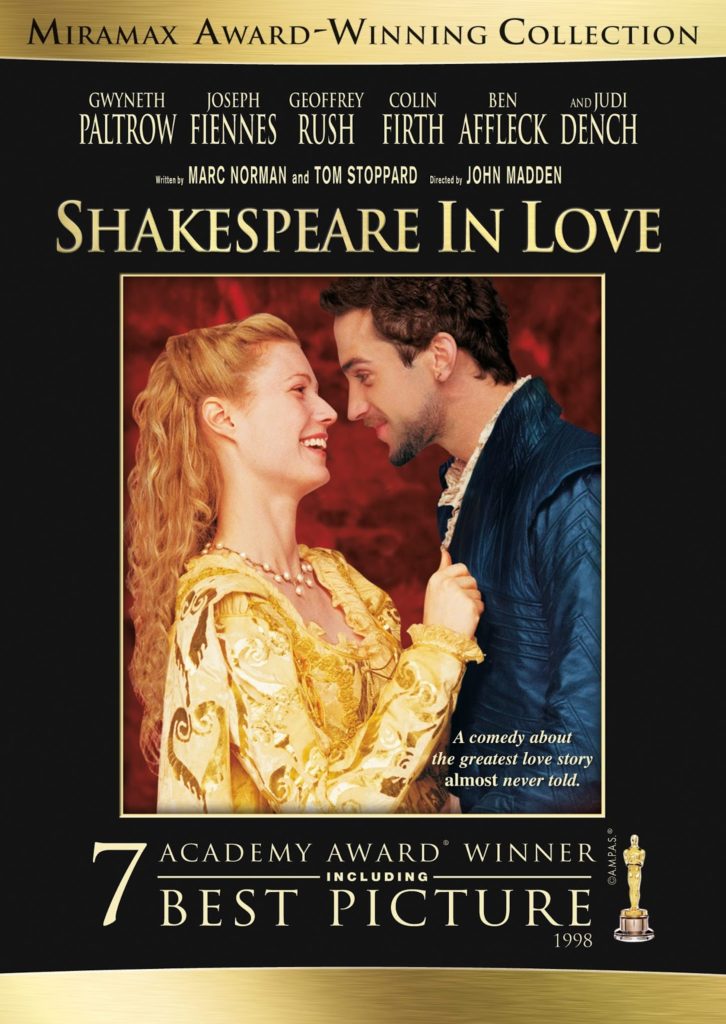
Who is Christopher Marlowe in Shakespeare in Love?
The character of Christopher Marlowe in Shakespeare in Love is played by English actor Rupert Everett.
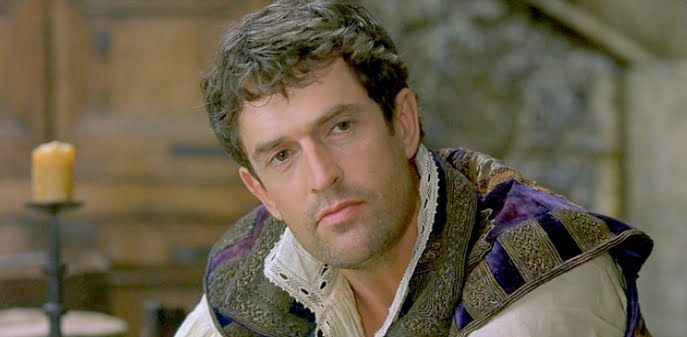
Check out some of Marlowe’s famous monologues
Famous Plays by Christopher Marlowe
Famous poems by Christopher Marlowe
The Inevitable Day Poem by Christopher Marlowe
The Massacre at Paris, Christopher Marlowe Summary
Enter A Spy, The Double Life of Christopher Marlowe
Christopher Marlowe Famous Quotes